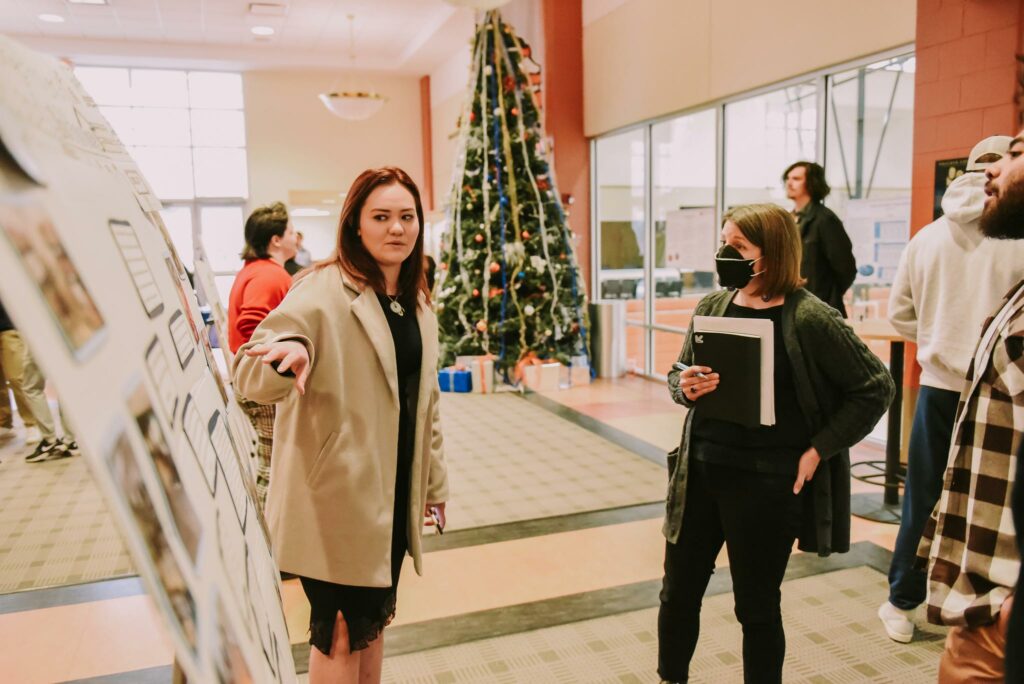
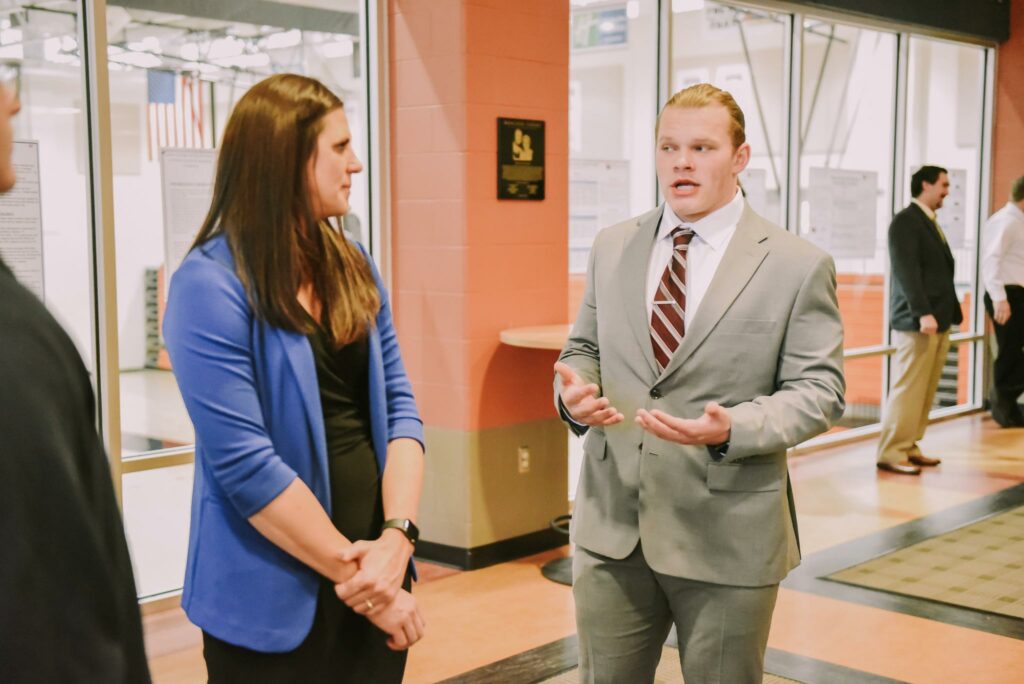
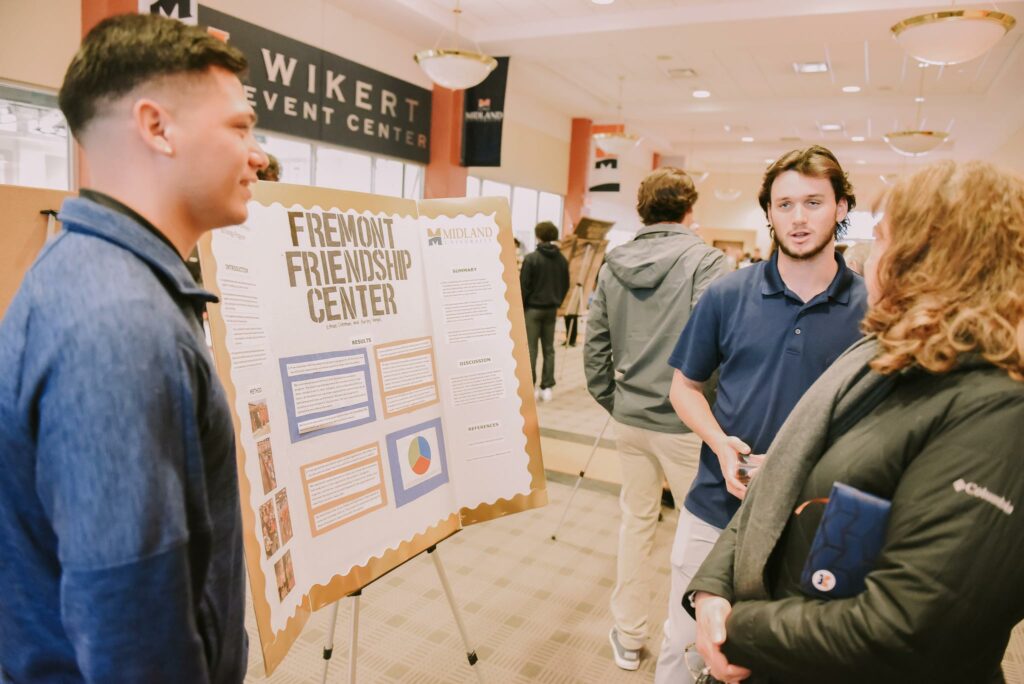
Midland University hosted its 2022 Fall Research Fair Dec. 9th in the Wikert Event Center. Students showcased their learning experiences through presentations at the Research Fair. Nearly 100 students participated with 69 displays on hand.
Certificates were presented to the top two finishers in each category.
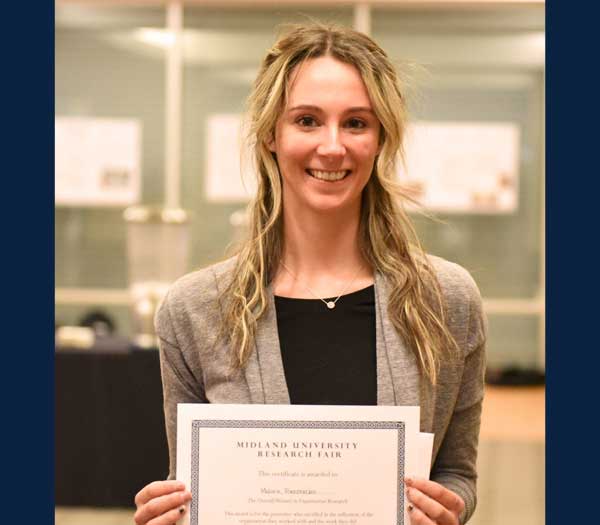
First Place Experiential Research
Malorie Poessnecker
Internship Experiences: United States Probation and Fremont Area United Way
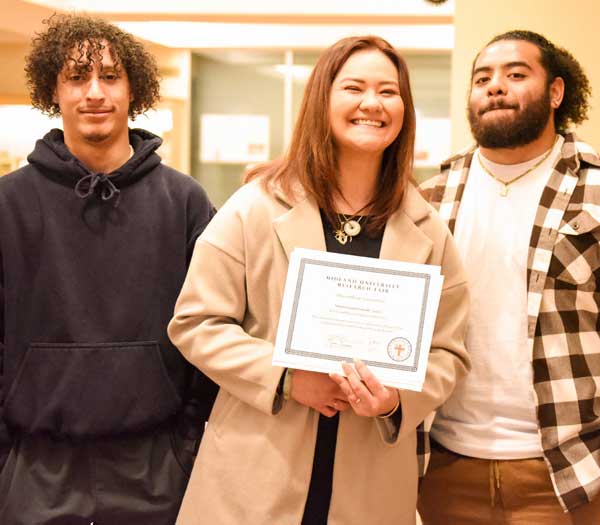
Second Place Experiential Research
Mahea Lewis, Villiami Makoni, and Isiah Bautista
Semester Long Journey with Care Corps LifeHouse
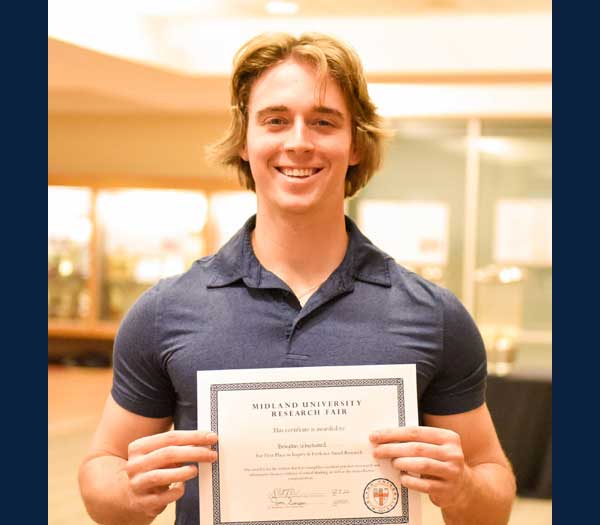
First Place Experiential Inquiry & Evidence-Based Research
Braydon Woodward
Birth of the American World Order
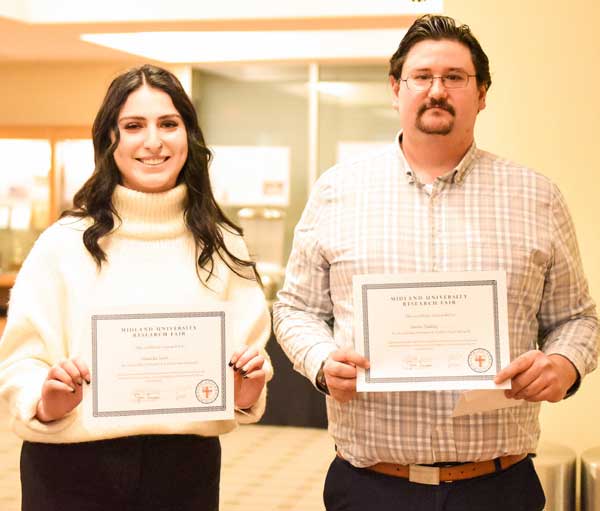
Second Place Experiential Inquiry & Evidence-Based Research
Franciska Lucio and Charles Buckley
Situation: STEMI Communication and Early Treatment Protocol
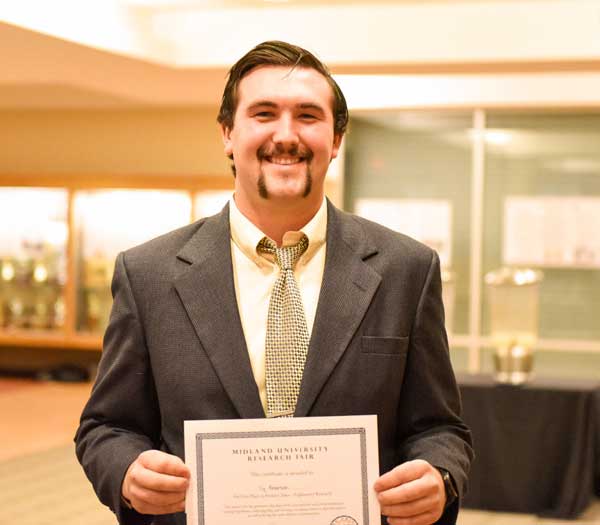
First Place Experiential Primary Data – Explanatory Research
Ty Peterson
College Sports and Their Effects on Student Athlete’s Self-Worth
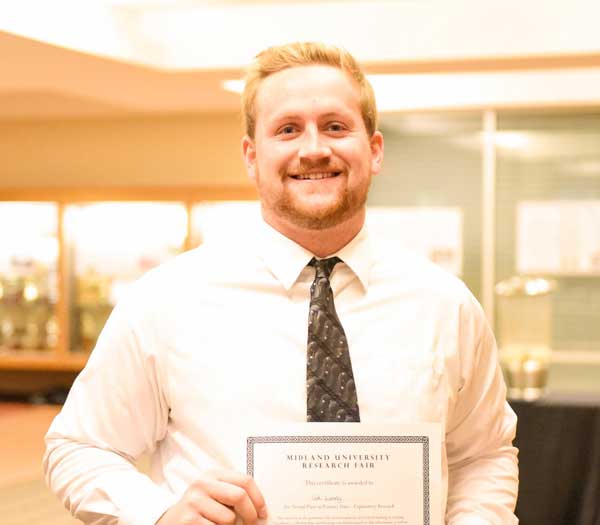
Second Place Experiential Primary Data – Explanatory Research
Cole Lundy
Legalizing Recreational Marijuana
